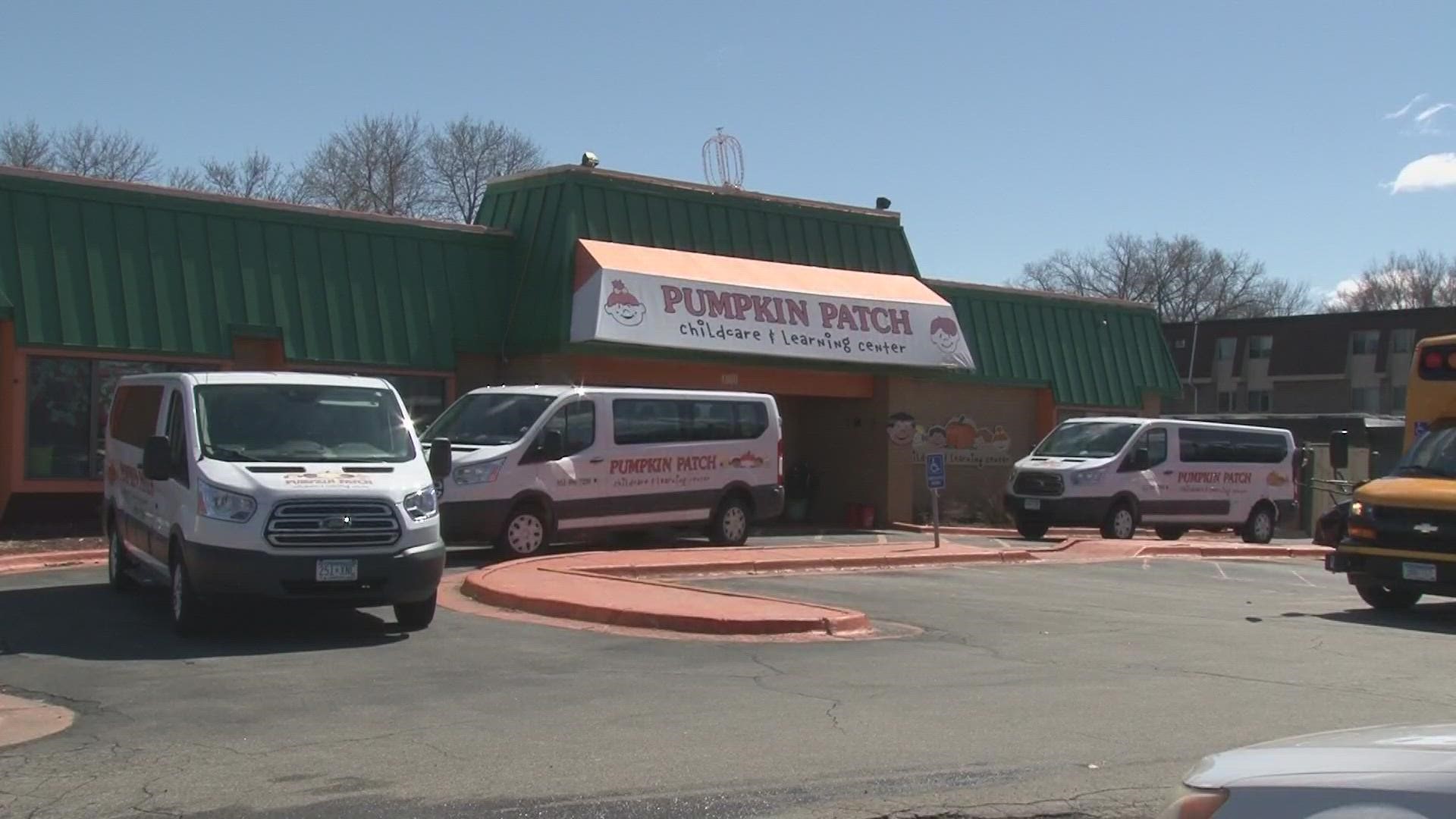ST PAUL, Minn. — House Democrats say they feel obligated to spend part of the state's historic budget surplus bolstering daycare providers and making childcare more affordable for more Minnesota families.
They've put together a package of legislation, which is moving through several committees at the State Capitol, that would expand childcare assistance and early learning scholarships, as well as create a new childcare tax credit.
"This bill not only lifts up Minnesota children and families, but provides much needed support to our workforce and to our economy as we rebound from the pandemic," Rep. Carlie Kotyza-Witthuhn, an Eden Prairie Democrats, told reporters.
If the proposed Great Start tax program became law it would provide a tax credit of up to $3,000 for each child under the age of five enrolled in licensed childcare, with a cap of $7,500 per family.
The bill would also give an additional 30,000 children access to more affordable childcare through an expansion of the existing sliding scale assistance. The plan would also pay for 20,000 more early learning scholarships.
The estimated cost of all of the changes in $850 million across the next four years. Of that, $200 million would go to extending the Stabilization Grant program that helped childcare providers stay afloat during the pandemic.
"The stabilization grants are why we’re still open during COVID. If that’s something that could continue, we could continue to pay staff a living wage," Amber Schillinger, the director Pumpkin Patch Childcare and Early Learning in Burnsville told KARE. "With those funds, we’re able to give raise we may not be able to give otherwise. There are a lot of big businesses out there that have been increasing pay throughout the pandemic and we can’t compete with that."
Even before the pandemic, childcare providers were feeling the squeeze, trying to keep rates affordable and pay employees enough to keep them in the fold. Schillinger said the pandemic and the ongoing labor shortage make it crucial that providers continuing getting help from the state.
"We were experiencing staff shortages prior to COVID. People were leaving this industry because they could not make a living wage," she explained. "Anytime we do have to raise our rate we have parents who are like, I’m price out now."
Minnesota has been leaving some federal childcare money on the table. The federal government allows states to reimburse providers up to 75% of the average price of childcare in the local market area. Minnesota's reimbursement rates are currently set at the 40th percentile for small children, and the 30th percentile for older kids.
Rep. Dave Pinto, a St. Paul Democrat who heads the Early Childhood Committee in the House, said the goal is to bring Minnesota back up closer to that 75th percentile mark and support providers so that people can afford to work in the childcare industry.
Pinto, who works as a prosecutor in his other jobs, sees a clear intersection between early learning and public safety that some have described as a "pay me now or pay me later" scenario.
"I should say my leadership of this committee was driven a lot by what I see in my work as a prosecutor, and all the ways people can get off track and what a difference it makes to get them on track early," Pinto explained.
Proponents of expanding childcare also point to the workforce aspects, noting that the childcare subsidy is what enables some parents to finish their education or take jobs they otherwise wouldn't be able to do while caring for little ones on their own.
"Our number one job in early childhood is making sure kids know that they’re safe, loved and they're important. We do it everyday, everything we do with these children and we’re just asking that our state legislature walk with us," Schillinger said.

